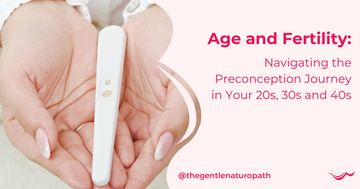Concerns raised over rapidly dropping sperm count to levels below those considered adequate for fertility
by Nikki Warren on May 02, 2022

A leading reproductive epidemiologist reports that Western men's sperm count has dropped by over 50 per cent in less than 40 years.
Professor in Environmental Medicine and Public Health, Dr Shanna Swan, has written a new book titled 'Countdown'. In her book she states that sperm counts are declining to levels below those considered adequate for fertility.
Sperm count is set to reach levels that are considered too low for conception by 2045 according to Swan. If sperm count continues to decline at this rate, most couples will have to use assisted reproduction. She further warns that by 2060, men will have little or no reproductive capacity at all.
Lifestyle factors are a significant cause of declining sperm count. These include smoking, binge drinking, insufficient exercise, obesity and poor diet.
"Those factors are relatively easy to control. But the other class of problems is the chemicals we use in our daily lives which we're surrounded with. Those chemicals have the ability to affect our bodies' hormones. Once you affect the hormones that affect reproduction, you can then affect reproductive health."
Dr Shanna Swan
Phthalates, a group of chemicals are the most worrying.
The chemicals that are the most problematic are phthalates. Phthalates is a group of chemicals used in hundreds of products.
Phthalates are in toys, vinyl flooring, wall coverings, in detergents and food packaging. Dr Swan stated that the plastics give up their phthalates in many ways. These include when food goes through them, when they come into contact with food and when we eat that food. The chemicals then enter our bodies and that lowers testosterone.
A woman who is pregnant or a man is about to conceive a child are most at risk. The absorption of these chemical may affect the development of their child. In simple terms, absorption of chemicals by the foetus could lower his sperm count when he grows up.
Bisphenol A (BPAs), is another chemical of concern. BPAs are used in some linings of of canned food containers, and are used to harden plastics.
Swan is not alone in her concerns either. Alex Ford and Gary Hutchison published an article about how everyday chemicals are destroying sperm counts.
"Dr Swan's claims are backed by a growing body of evidence. It is finding reproductive abnormalities and declining fertility in humans worldwide.
Equally alarming is an increase in the rate of miscarriages and developmental" abnormalities in humans. These abnormalities include small penis development, inter-sexuality (displaying both male and female characteristics) and non-descended testes. Declining sperm count has been linked to all of these abnormalities."
Alex Ford, a Professor of Biology and Gary Hutchison, a Professor of Toxicology
Endocrine-disrupting chemicals passed to the foetus
"The mother's exposure to the chemicals during her pregnancy will determine the degree to which the foetus experiences hormonal interference. That means that present-day sperm count data speaks not to the chemical environment today, but to the environment as it was when those men were still in the womb. That environment is undoubtedly becoming more polluted.”
Alex Ford, a Professor of Biology and Gary Hutchison, a Professor of Toxicology
Dr Swan believes that humanity can turn things around.
The chemical industry needs to produce chemicals that can be used in everyday products, and that are non-hormonally active.
Dr Swan is calling for more testing of chemicals that we are currently using.
The UK is one country starting to take steps to address this issue. Department for Environment, Food and Rural Affairs is currently building a chemicals strategy. The EU is changing chemical regulations to prevent harmful substances replacing other banned ones.
"Couples looking to conceive should research the effect of chemicals, and try to avoid using plastic in their kitchen as much as they can." stated Dr Swan.
Dr Swan recommends we avoid microwaving or storing food in plastic. She also recommended avoiding processed food - as it has often passed through plastic tubes - as well as food stored in plastic.
Making simple changes to how you cook, store and heat food for you and your children are all positive steps. Choose plastic free options wherever you can and carefully research food and drink containers that are most suitable for your children.




